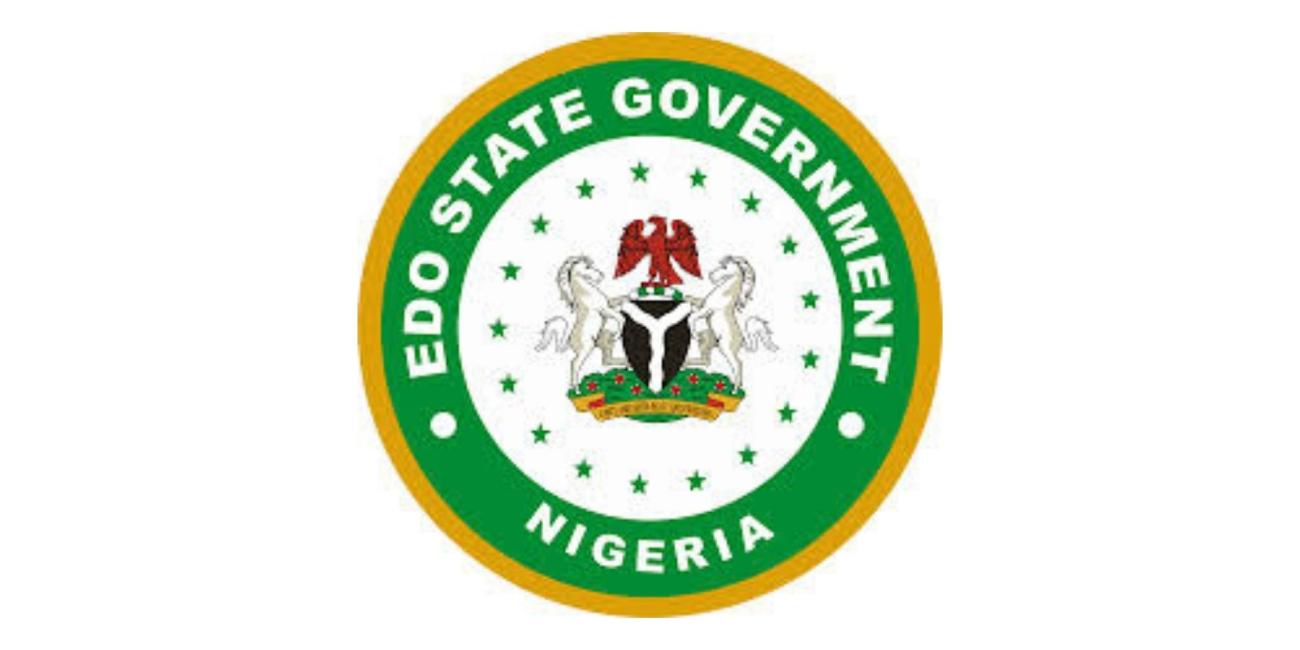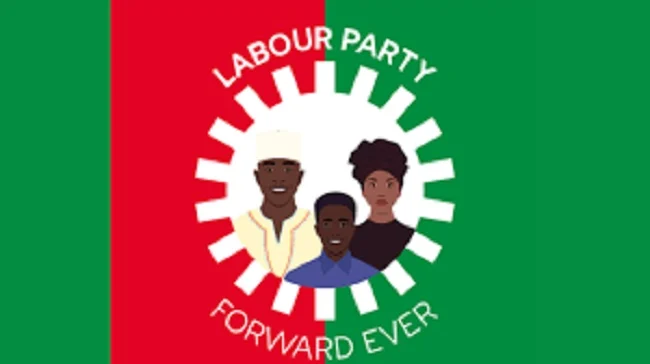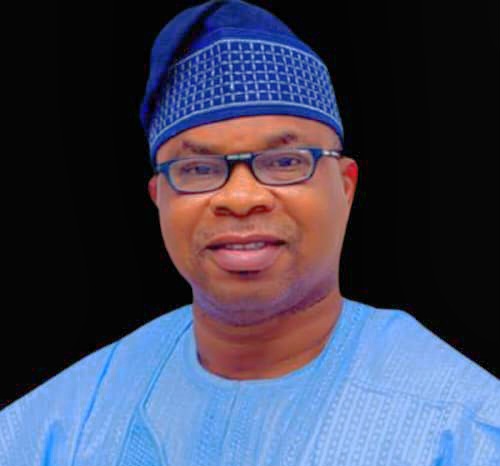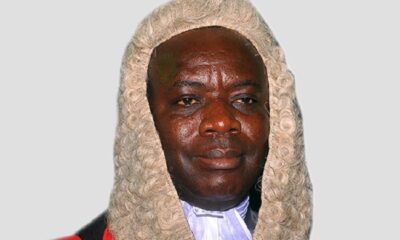Opinion
Nigerian Bar Association Ramps Up Anti-Graft Efforts

Corruption has been established severally as a profound problem on Nigeria’s path to progress and development. Former President Muhammadu Buhari, even though he did not demonstrate adequate will in the fight against corruption, recognised this fact, in submitting that we must kill corruption before it kills Nigeria. Apart from Nigeria’s retrogressive performance in the Transparency International’s corruption rankings, a 2024 Nation-wide Corruption Survey by 1,500 Nigerians which culminated in a recent publication, Nigeria Corruption Perception Data, shows the prevalence of corruption within the three arms of government, three levels of governance and the three sectors of society: public, private, and social sectors. My findings from the survey corroborated my long held argument that Corruption and Leadership Deficit are the major bane of Nigeria, and that without concrete incremental efforts towards addressing corruption, meaningful human development and utmost freedom would remain elusive.
Not many Countries explicitly have anti-corruption written into their respective constitutions. Our laws and constitution are not oblivious to the devastating effects of corruption, hence the intentions to address issues of corruption. Section 98(I) of the Criminal Code provides that any Public officer who is found guilty of corruption is guilty of a felony and is liable to seven years’ imprisonment. Section 15 (5) of the 1999 constitution, as amended, stated that, “The state shall abolish all corrupt practices and abuse of power.” Similarly, Section 23 of the constitution provides for a National Ethics which shall be discipline, integrity, dignity of labour, Social Justice, religious tolerance, self-reliance, and patriotism. The NBA, leading by example, can provide some inspiration for the Judiciary, the Legislature, and Executives on the need for real commitments and will in the fight against corruption. However, Governments in Nigeria, since 1999, have paid different levels of lip service and actions towards reducing corruption in Nigeria.
Not only is there a constitutional injunction to address corruption, it is known that there is also an inverse relationship between corruption and the rule of law. So, it is a welcome development that the Nigerian Bar Association has recently commenced showing interest in contributing to anti-corruption in Nigeria. Tackling corruption successfully is to enhance the rule of law, the NBA’s guiding motto. A failure in mitigating and addressing the scourge of corruption is to create a situation of disregard for the rule of law.
The NBA, under the current leadership of Mazi Afam Osigwe, SAN, should be supported in its efforts against corruption. At its recent NEC meeting, the Nigerian Bar Association (NBA), following the recommendation of its National Anti-Corruption Committee, unanimously resolved to establish Branch-Level Anti-Corruption Committees across all 130 branches, working in synergy with the National Committee, chaired by Prof. Babafemi A. Badejo.
Matching his words and commitment with actions, the NBA President has charged all the 130 NBA branch Chairmen to constitute branch-level Anti-Corruption Committees. In his communication, the NBA President stated:
I am directing all Branch Chairmen to take immediate steps to constitute their respective Branch-level Anti-Corruption Committees. These committees will work in strategic alignment with the National Anti-Corruption Committee, chaired by Prof. Babafemi A. Badejo, to achieve the broader objectives stated in the following Terms of Reference that my office had charged the National Anti-Corruption Committee with:
1. Investigating and addressing complaints of corruption and unethical conduct
within the legal profession;
2. Collaborating with anti-corruption agencies, civil society organisations, and other
stakeholders;
3. Developing and promoting policies and initiatives that foster transparency and
accountability;
4. Organising sensitisation campaigns, training programs, and workshops on anti-corruption laws and ethical best practices;
5. Providing legal support for whistleblowers and victims of corruption; and
6. Undertaking any additional assignments as directed by the President or NEC.
The NBA presidential directive from Mazi Afam Osigwe, SAN, is a commendable and decisive institutional move from the NBA. Indeed, “a clarion call for moral leadership and institutional renewal,” in the words of the NBA President. The NBA, at this point, cannot afford to be euphemistic, diplomatic, or act in denial against the monster of corruption that has become life-choking.
The NBA must not sit idly, hoping that false patriotism or miracles will solve a problem that our collective actions, courage, resolve, and accountability must address. This renewed effort reflects our belief in the efficacy of the Rule of Law, Integrity, Excellence, and Courage, as reflected in Nigeria’s Constitution and the NBA’s Vision, Values, and Motto. The national focus on anti-corruption should, in addition to other institutional arrangements, be on the NBA’s structured efforts on anti-corruption as a way of promoting the rule of law.
Leadership.ng
Opinion
Edo State To Spend N1billion On Armoured Car For Speaker, N4.6billion On Vehicles For Lawmakers

The budget also reveals that N4.6 billion is planned for vehicles for the 25 members of the State House of Assembly.
Reporters’ review of the Edo State approved budget for 2026 shows that N1billion has been allocated to purchase an armoured vehicle for the Speaker of the State House of Assembly.
The budget also reveals that N4.6 billion is planned for vehicles for the 25 members of the State House of Assembly.
Also, N50million is planned for the purchase of refrigerators and other equipment for four directors. The House of Assembly Commission also plans to spend 200 million naira on roof and window replacement for its office building.
Earlier, a civic accountability group, MonITng, raised concerns over the execution of a multi-million-naira education project in Edo State, citing poor quality, procurement irregularities, and a recurring pattern of questionable contract awards.
“A project titled ‘Building of Blocks of Classrooms at Ojah Comprehensive High School, Akoko LGA, Edo State’ with project code ZIP20240448, valued at ₦222,000,000.00, and awarded under the Federal Polytechnic Auchi, Federal Ministry of Education, has raised serious concerns about the quality of execution, contract pricing, and procurement integrity.”
According to MonITng, its team tracked and inspected the project site. “Our team tracked and visited the project site and confirmed that although the classrooms were completed, they were poorly constructed.”
The group further noted: “The structure lacks basic finishing elements such as landscaping, proper drainage, and standard finishing works, all of which should have been included and adequately executed, given the huge sum budgeted for the project.”
It added that “the poor quality of work raises questions about project supervision, contract oversight, and how the allocated funds were spent.”
MonITng also linked the project to a contractor allegedly tied to multiple controversial contracts. “Even more troubling is the pattern we uncovered. The project was executed by Sam Sedi Nig. LTD, a company that has consistently received major contracts facilitated by Senator Adams Oshiomhole.”
The group claimed that “this same contractor handled the abandoned ERGP20245252 project, Construction of Warake to Ivbiaro Road in Owan East LGA, valued at ₦200,000,000.00, which remains incomplete despite significant disbursements.”
“Additionally, the same company implemented a controversial agricultural empowerment programme in Etsako communities, also facilitated by Senator Oshiomhole.”
MonITng alleged that “the recurring involvement of this contractor in multiple projects, combined with substandard delivery and abandoned works, suggests a pattern of procurement manipulation, inflated contracts, and possible diversion of public resources.”
It added that “the situation reflects how public projects, although completed on paper, often fail to deliver a meaningful impact due to corruption, poor supervision, and a lack of accountability.”
Opinion
APC E-registration Plot To Manipulate 2027 Polls – Ogun LP

The Ogun State chapter of the Labour Party has accused the All Progressives Congress of using its ongoing electronic membership registration to allegedly manipulate figures ahead of the 2027 general elections.
In a statement issued on Wednesday, the state chairman of the Labour Party, Chief Oluwabukola Soyoye, claimed that the APC’s e-registration exercise was designed to digitally inflate its membership strength and project a false image of popularity in the state.
Soyoye alleged that the ruling party had resorted to electronic registration because it could no longer mobilise people openly, insisting that the administration of Governor Dapo Abiodun had suffered widespread rejection due to what he described as underperformance.
According to him, the APC’s e-registration, presented as a routine membership drive, was in reality “a political referendum that exposes the deep rejection of Governor Dapo Abiodun and his black-market style of governance by the people of Ogun State.
“The people of Ogun are now wiser. They have deliberately refused to participate in any open, physical APC registration because they know the ruling party has failed them,” Soyoye said.
“That is why the APC has resorted to this so-called electronic registration — a system that allows figures to be fabricated behind closed doors without the presence of real members.”
The LP further alleged that the electronic platform could be used to manipulate membership data, inflate figures and create a misleading narrative of political dominance ahead of 2027
“What we are witnessing is not a genuine political exercise but a fraudulent digital operation designed to manufacture legitimacy for a government that has lost the confidence of the people,” Soyoye added.
Opinion
Let These Campaigns Of Calumny Against AMBO Stop Forthwith

By Kola Odepeju
“Calumny Is Only The Noise Of Madmen” –Diogenes
As Osun state gubernatorial election draws nearer, we’re now at the dawn of the campaigns for the coming election and so as characteristic of Nigeria’s democracy, wrong accusations, blackmails, character assassinations and all manner of negative campaigns aimed at demarketing the most popular candidate with the highest chances of coasting home to victory in a major election of this nature, must surface. And so in our own dear Osun state here this ugly trend has started surfacing. The mudslinging that has started from Governor Ademola Adeleke’s Accord Party’s camp against the APC gubernatorial candidate, Asiwaju Munirudeen Bola Oyebamiji AMBO is ‘normal’ and expected because with the massive support for AMBO across the nook and cranny of the state, it’s crystal clear that he’s the candidate to beat.
As mentioned above, a candidate to beat in any major election is bound to face vilifications by his opponents who see him as a threat and a stumbling block against the success of their own ambitions. Therefore given the nature of our politics in this part of the world, the negative campaigns that have started against AMBO are no surprise. We witnessed the same thing against the incumbent president, Asiwaju Bola Tinubu during the 2023 electioneering campaigns for the office of the country’s president. But against all odds, Asiwaju Tinubu emerged victorious. So as Asiwaju Tinubu emerged victorious in 2023, l have that strong conviction that our own Asiwaju Bola Oyebamiji will also become victorious in the coming August gubernatorial election in the state irrespective of whatever negative campaigns that may come up against him. This is because the AMBO governorship project is divinely ordained.
Amongst other attacks that are still likely to come up against him as we face the election and as the election faces us, we have heard from those who are afraid of losing power that AMBO is the architect of half salaries in Osun (as if he was the governor in that era). We have also heard from them that he’s not youth-friendly. The spokesperson to governor Adeleke, Malam Olawale Rasheed also amplified these two negative points in his latest article aimed at demarketing AMBO. Like I mentioned, the negative campaigns have just started. We are still going to hear more. I wonder why people cannot engage in issues-based campaigns instead of vilifying candidates.
Ambo has told Osun youths the program he has for them. He has promised to take care of them. And as a God-fearing and honest leader who keeps to his words, l believe he will not renege on his promise for the youths and also his promises for Osun people generally. So let those who revel in vilifying a credible candidate like AMBO tell Osun youths the programs they have for them rather than calumniating a visionary and capable leader who has what it takes to deliver the goods. Of course AMBO – being a focused leader – needs not to bother himself about the negative campaigns being circulated against him by his political detractors because William Shakespeare had for long told us that “*Be thou as chaste as ice, and as pure as snow, thou shall not escape calumny*”. And George Washington also mentioned it that “*Silence is the best answer to false accusations*”.
Finally, the Yorubas in their words do say that “maligning the honey doesn’t reduce its sweetness”. No matter the level of negative campaigns against the APC gubernatorial candidate towards the election, it won’t reduce the love the Osun people have for him while it won’t deter them from casting their votes for him in the upcoming gubernatorial election in the state. He will surely come out victorious by the special Grace of God Almighty 🙏. For, Vox populi vox dei. AMBO should continue on the path of issues-based campaigns and close his eyes against malignant talks by those who are already on their way out of power.
● Odepeju, newspaper columnist and political activist, writes from Iragbiji, Osun state.
-

 Politics2 days ago
Politics2 days agoAssembly Confirms Popular Redeemed Pastor As Deputy Governor
-

 Foreign2 days ago
Foreign2 days agoCabinet Reshuffle: President Sacks Finance Minister
-

 Business2 days ago
Business2 days agoJUST IN: 13 Banks May Shut Down In March As CBN Confirms 20 Safe For Recapitalisation Deadline
-

 Politics9 hours ago
Politics9 hours agoBREAKING: “Serial Disrespect” Sparks Drama As Senate Order Arrest Of Tinubu’s Appointee
-

 Politics10 hours ago
Politics10 hours agoOpposition Leaders Urge N’Assembly To Begin Fresh Electoral Act Amendment
-

 Opinion9 hours ago
Opinion9 hours agoEdo State To Spend N1billion On Armoured Car For Speaker, N4.6billion On Vehicles For Lawmakers






